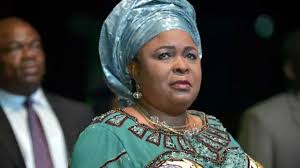Beyond Borders: The Nigerian Youths Making Waves in the Global Digital Space
When Damilare Oyewole secured admission into the Department of Pharmacy at the Obafemi Awolowo University (OAU) in Ile-Ife, Osun State, he envisioned a path to becoming a healthcare professional. However, the reality of Nigeria’s higher education system had other plans.
Like thousands of other students, he found himself stranded when the Academic Staff Union of Universities (ASUU) embarked on an indefinite strike in 2019. What was supposed to be a short break stretched into months, forcing many students into uncertainty.
But instead of letting uncertainty get the best of him, he turned to LinkedIn and discovered a world of opportunities. Today, he’s a full-stack software engineer, working with global organisations and earning over $1,000 monthly.

“I got all of my jobs from the very first one to the last one on LinkedIn,” Damilare told Campus Reporter. Before graduating from OAU in 2024, “I worked with a company in New Delhi, India, and I am currently employed by Dekamco in the United States of America.”
In a world where technology is rapidly changing the game, Nigeria’s youthful population is seizing the moment, leveraging their skills to participate in the global digital economy. With over 60% of its population under the age of 25, Nigeria has a large pool of young talents.
The country’s digital economy has grown exponentially, driven by technological innovation and an ambitious youth population. The information and communications technology sector contributed 16.35 per cent to Nigeria’s real Gross Domestic Product in the third quarter of 2024, according to the National Bureau of Statistics (NBS). Also, a 2023 World Bank report says the IT services sector grew nearly twice as fast as the global economy from 2000 to 2022.
The global nature of the internet has enabled young Nigerians to offer freelance services on platforms like Upwork and Fiverr. From graphic design to virtual assistance, these young professionals are earning incomes in foreign currencies, often without leaving their homes.
Similarly, the e-commerce market in Nigeria is rapidly expanding, driven by an estimated 76.7 million online shoppers. Also, the number of Point-of-Sale (POS) terminals in Nigeria has grown since 2017. Meanwhile, content creation has become the fastest-growing segment in the creative economy as platforms like Instagram, TikTok, and YouTube provide opportunities for young Nigerians to monetise their creativity through influencer marketing and branded content.
While Damilare found his footing in tech, Adeife Adeoye, a graduate of Mathematics from the University of Ilorin, charted a different course in the digital space as a content marketer, writer and creator. Her journey began in 2020, when she got her first job as a content marketing manager at Eulahub, courtesy of LinkedIn. This pivotal role opened her eyes to the limitless possibilities of freelancing, and she never looked back.
Fast-forward to 2024, Adeife founded Remote WorkHER, a thriving community that empowers women to thrive in the freelancing and tech space. In just a short span, the community has grown to over 10,000 members.

“Tech and freelancing changed my life,” she told Campus Reporter. “If someone told me I’d deliver a TEDx talk at 23, I wouldn’t have believed it. But freelancing gave me that opportunity. Freelancing and tech are the great equalisers, they allow us to break free from geographical and societal constraints.”
Another entrepreneur who simply identified himself as Tolulope said his entrepreneurial journey took off in 2021 with the launch of Utility Top Up, a platform offering affordable airtime, subscription, and cable TV services. The venture’s remarkable success sparked a desire for further growth, prompting Tolulope to pursue additional certifications and courses.
“I recently concluded a diploma in project management which has equipped me with the skills to take my ideas to the next level,” he explained. “The digital economy has transformed the lives of many Nigerian youths. It has provided us with job opportunities and the tools to solve real-world problems.”

Tolulope’s relentless drive and passion for innovation have led to the establishment of CareBrij, a telehealth platform dedicated to improving access to healthcare and advancing the United Nations’ Sustainable Development Goal 3 (Good Health and Well-being). Additionally, he co-founded Profirea, a testament to the digital economy’s potential to drive social impact and innovation.
Aside from individuals, Nigerian startups are setting benchmarks for innovation as companies like Moniepoint, Kuda, and Opay are leading the fintech sector in Nigeria. According to a 2022 report by McKinsey & Company, fintech growth is likely to be concentrated in 11 key markets: Cameroon, Côte d’Ivoire, Egypt, Ghana, Kenya, Morocco, Nigeria, Senegal, South Africa, Tanzania, and Uganda, which together account for 70 per cent of Africa’s GDP and half of its population.
Platforms like Jumia and PiggyVest have become household names in e-commerce and personal finance. These startups do not just offer solutions; they create jobs and inspire a new generation of entrepreneurs.
Speaking on how Nigerian youths are thriving in the digital space, a professor of Labour Economics, Abdul-Lateef Usman, highlighted the potential of the digital economy to drive development in Nigeria.
According to him, the digital economy has created a borderless world for Nigerian youths, providing them with means to compete globally, offer services to clients overseas, and earn in currencies that are significantly stronger than the naira.
“The digital economy is not just lucrative; it’s transformational. Young Nigerians are earning in foreign currencies, reducing unemployment, and contributing to national growth. With further investments in digital infrastructure and education, we would see an economic boom driven by tech-savvy youths,” he said.
However, Prof. Usman stressed the need for structural reforms to maximise the sector’s potential. He urged the Nigerian government to integrate Science, Technology, Engineering, and Mathematics (STEM) education into school curricula.
“We must reform policies to accommodate STEM and other digital education programmes. It’s essential to prepare our youth for the realities of a tech-driven world,” he advised. “Policy adjustments will enable more Nigerians to thrive in the digital space and contribute to national growth.”
Meanwhile, Campus Reporter learnt that a significant driver of success in the digital economy is continuous learning through investment in online courses and attending webinars.










